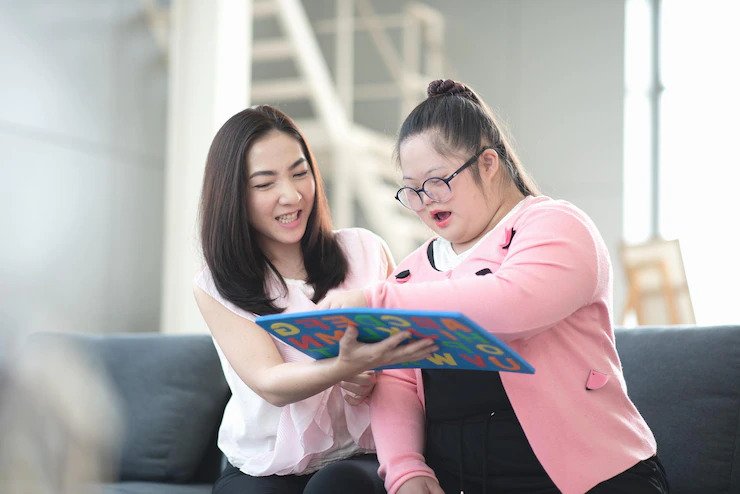
Special education is the practice of educating students in a way that accommodates their individual differences, disabilities, and special needs. Ideally, this process involves the individually planned and systematically monitored arrangement of teaching procedures, adapted equipment and materials, and accessible settings. These interventions are designed to help individuals with special needs achieve a higher level of personal self-sufficiency and success in school and in their community, which may not be available if the student were only given access to a typical classroom education.
Special education aims to provide accommodated education for students with disabilities such as learning disabilities, learning difficulties (such as dyslexia and ADHD), communication disorders, emotional and behavioral disorders, physical disabilities (such as osteogenesis imperfecta, cerebral palsy, muscular dystrophy, spina bifida, and Friedreich's ataxia), developmental disabilities (such as autistic spectrum disorder and intellectual disabilities) and other disabilities.Students with disabilities are likely to benefit from additional educational services such as different approaches to teaching, the use of technology, a specifically adapted teaching area, a resource room, or a separate classroom.
Some scholars of education may categorize gifted education under the umbrella of "special education," but this pedagogical approach is different from special education because of the students' capabilities. Intellectual giftedness is a difference in learning and can also benefit from specialized teaching techniques or different educational programs, but the term "special education" is generally used to specifically indicate instruction of disabled students.
